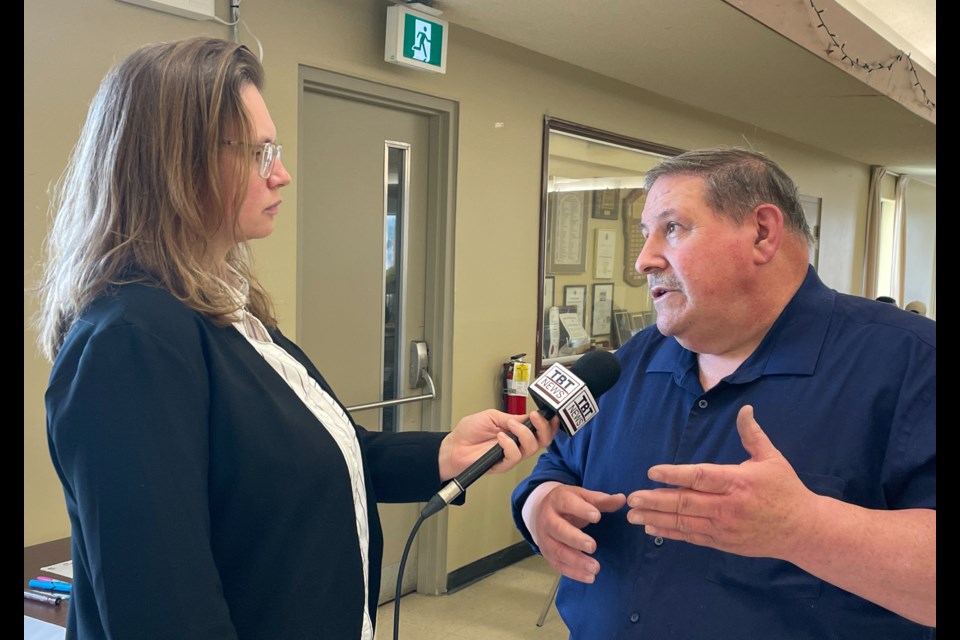THUNDER BAY — All roads will lead to the Ring of Fire - but, until then, there are still pathways to be made.
Members of Marten Falls First Nation and Webequie First Nation participated in an ‘employment readiness’ engagement session hosted by North Superior Workforce Planning Board on Wednesday night.
The session, which featured food, games and prizes, was held at the Oliver Road Community Centre in Thunder Bay.
Gary Christian, executive director of the North Superior Workforce Planning Board and one of the engagement session's main organizers, described some of the goals which the planning board and both First Nations hope to achieve with their ‘employment readiness project.’
“It’s a community-led project. We’re going to do an environmental scan of what services are available in each community, what services are needed for future development in terms of jobs – in terms of capacity within each of the communities – referring to the Eagle’s Nest, which everybody calls the Ring of Fire,” he said.
Making the market more accessible for people from remote communities such as Marten Falls and Webequie to take advantage of ongoing and upcoming job growth was the main focus of the engagement session and is the goal of the overall project, according to Christian.
“The intention of the project is to look at what we can do to help them create pathways, so if individuals want to get into a career of any kind – doesn’t have to be in mining, it could be any trade or any skillset – to help them get to that,” he said.
Dougall Media reporters previously spoke with Christian at the Thunder Bay District Municipal League conference in April about the job market in Northern Ontario and how there are “tons of jobs but no people” applying for them.
Projects such as this one can fill in those gaps while bolstering the sovereignty and self-government of both First Nations involved.
“They lead the approach on this, it’s not going to be us. We’re going to listen to them, we’re going to see what they want, and we’re going to build what they want to serve the people in their communities.
“This is really cool because it opens up the capacity of the communities much greater than they are now,” he said.
He noted a high interest in services which support the mining industry – e.g. mechanics, cooks – in addition to careers in band administration and the arts (i.e. performance, visual art, writing).
Christian added this project spins naturally out of the partnership and terms of reference between Marten Falls, Webequie, and the provincial government over the Northern Road Link.
“Our organization was asked to work with that partnership . . . and get people ready for that development which, again, is going to be future development down the road,” he said.
It’s with the Northern Road Link in mind that Norman Shewaybick, Webequie’s workforce planning board mentee, explained why this employment readiness project is so important for his community and what kind of barriers it addresses.
“It’s the remoteness of my First Nation. It’s an island – and you have to fly-in. That’s very hard. Education is so far away . . . (and) we don’t have anything there for us, it has to be shipped in. It’s the high cost of living.
“You have to have a future. Mining is the main thing that is coming to us and we have to prepare for that. We have to prepare our young people with education. It has to be now,” he said.
The community of Marten Falls First Nation faces similar barriers in terms of accessibility.
Sharon O’Keese, mentee for Marten Falls, has been working for the North Superior Workforce Planning Board since December.
She said her favourite aspect of working for the planning board is empowering the youth from her First Nation to hone their skills and find employment.
However, she also identified some of the specific challenges members of Marten Falls face when it comes to accessing employment.
“They face the challenge of getting training and because they live in a remote community, it’s hard for them to come out and live in Thunder Bay or wherever they choose to do training – it’s hard for them because they can’t find housing and income,” O’Keese said.
She described herself as hopeful about the future.
“That’s why I’m here today. I’m hoping with this job I can help our community members get better employment and a better education for that,” she said.
